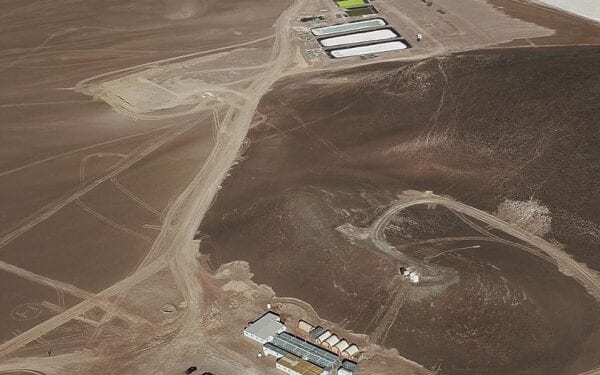Highest Battery Grade Lithium Produced To Date With 99.9% Purity
Neo Lithium Corp. (TSXV:NLC; OTCQX:NTTHF) has reached an important milestone in lithium carbonate production at its pilot plant for its wholly owned Tres Quebradas lithium project (3Q Project) in Catamarca Province, Argentina.
Using the upgraded alkali methodology, the company further advanced the crystallisation parameters as well as other necessary minor adjustments, which resulted in achieving battery-grade lithium carbonate with a purity of 99.891%, which is acceptable by Contemporary Amperex Technology Co. Limited (CATL) for its LFP batteries standard.
President and CEO, Waldo Perez, said this methodology will be applied to the design of the 3Q Project lithium carbonate pilot plant in the feasibility study being carried out by Worley and expected to be completed by the end of Q3 2021.
The company will now convert the Plant from batch mode into continuous mode to produce large samples for specification certification. Neo Lithium has already sent samples to CATL in China for their own chemical analysis.
“We have reached our objective to produce high-quality lithium carbonate while minimising the reagent consumption and freshwater footprint,” Mr Perez said. “We are now ready to complete the feasibility study with the final parameters achieved in the piloting stage.”
The Pilot Plant Process
Neo Lithium received the Plant built by the Instituto de Investigaciones Tecnologicas from Universidad de Concepcion, Chile in February 2019. The company’s engineers assembled the Plant in the warehouse of the town of Fiambalá, Catamarca, located 160km from the 3Q salar. The Plant operated in batches and has a designed annual capacity of 50 tonnes of lithium carbonate per year using concentrated brine from the 3Q Project with 3.2% to 3.6% lithium brine.
After approximately one year the brine is evaporated, and sodium chloride, potassium chloride and calcium chloride are removed to produce concentrated brine.
he Plant produced the first batch of lithium carbonate with 99.1% purity in September 2019 and in March 2020 the engineers achieved a 99.535% purity following the process described in Technical Report filed on May 8th, 2019. This process uses solvent extraction phase (SX-B) for boron removal, a sulphation phase for calcium removal using sodium sulphate and a liming and carbonation phase to remove magnesium and any remaining calcium.
At that point, the company’s technical team designed a more efficient process to produce higher purity lithium carbonate with lower consumption of fresh water, reagents, and energy. This process was called the alkali route and in this process the sulfation phase for calcium removal is changed by an alkalization phase with sodium hydroxide. The first production of lithium carbonate with this process reached 99.599% purity in March 2020 and 99.797% purity in January 2021.
The company has now achieved the final objective of 99.891% which is considered acceptable as a final product of high-quality battery grade material for the production of LFP batteries by CATL. This process will be used as final design for the feasibility study scheduled to be completed by Worley by the end Q3 2021.
The company has about 50 tonnes of concentrated brine ready to be converted to lithium carbonate by the Plant and has also upgraded the pilot ponds to mimic the pond design of the feasibility study parameters.
Since the arrival of the Plant over 30 batches of lithium carbonate have been produced, and the final quality goals have been achieved. The next phase is to set up the Plant in continuous mode to produce larger volume samples for final specification tests and final certification.
The company is also pleased to announce that it has engaged Kemetco of Canada to evaluate the physical parameters of the final product.
For further information please visit: https://www.neolithium.ca/












